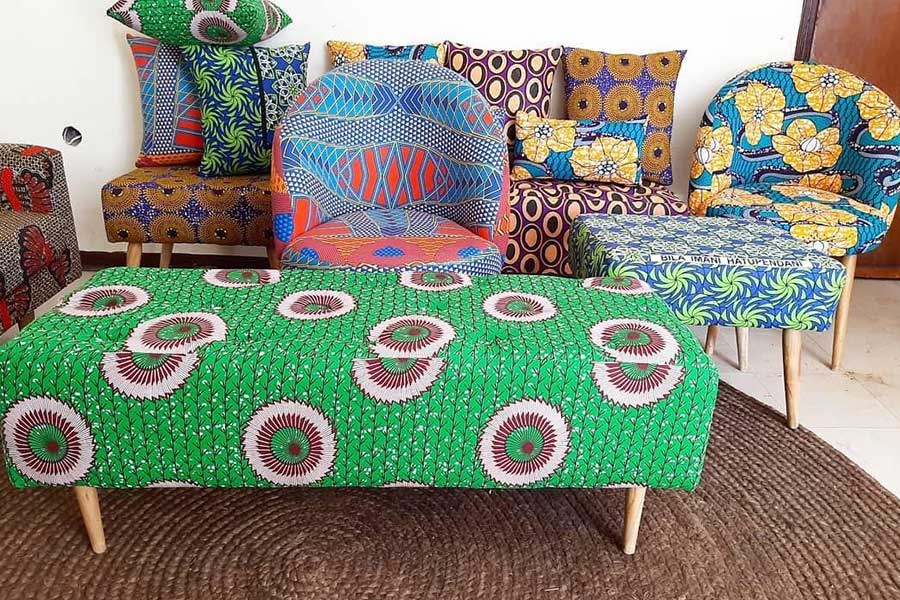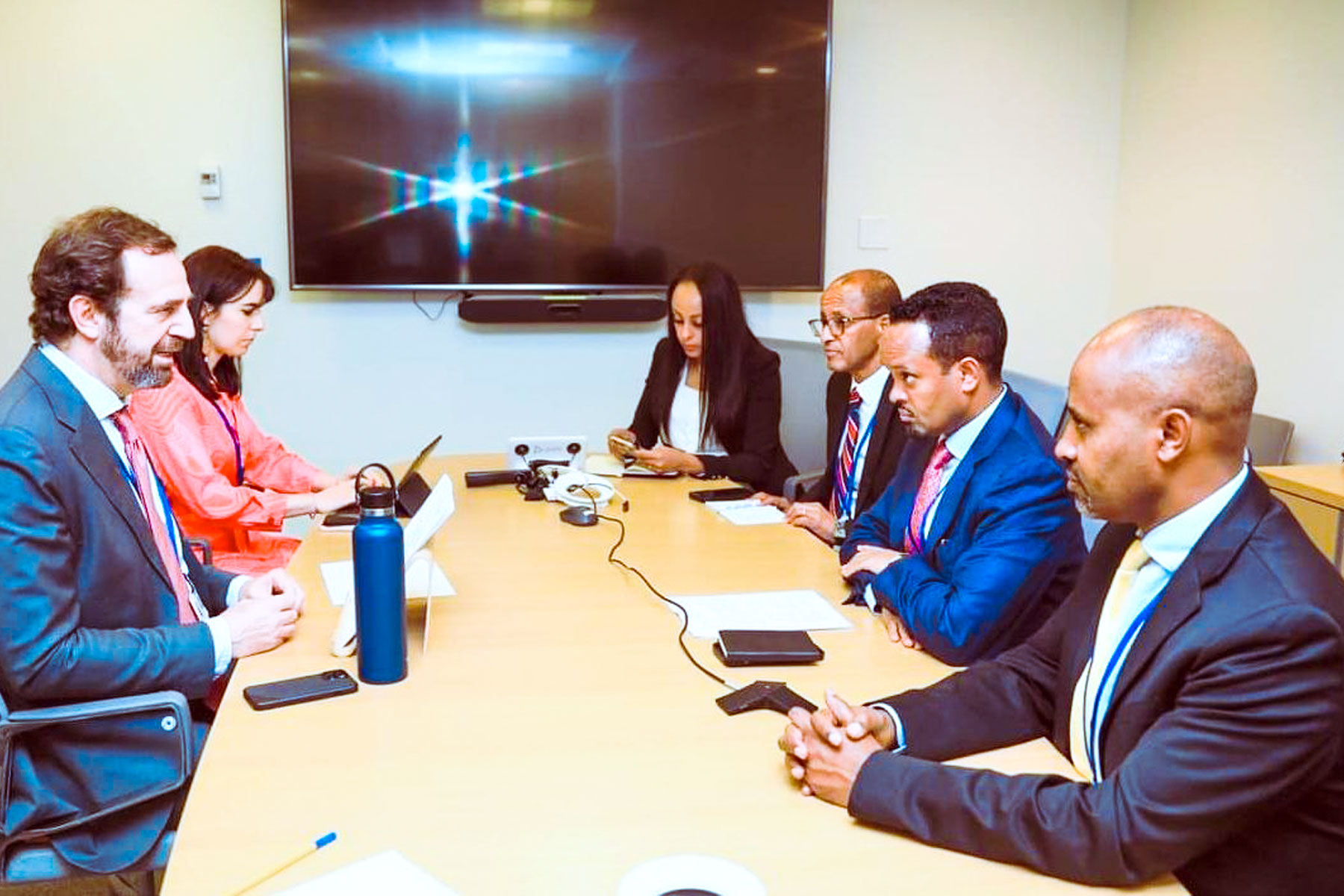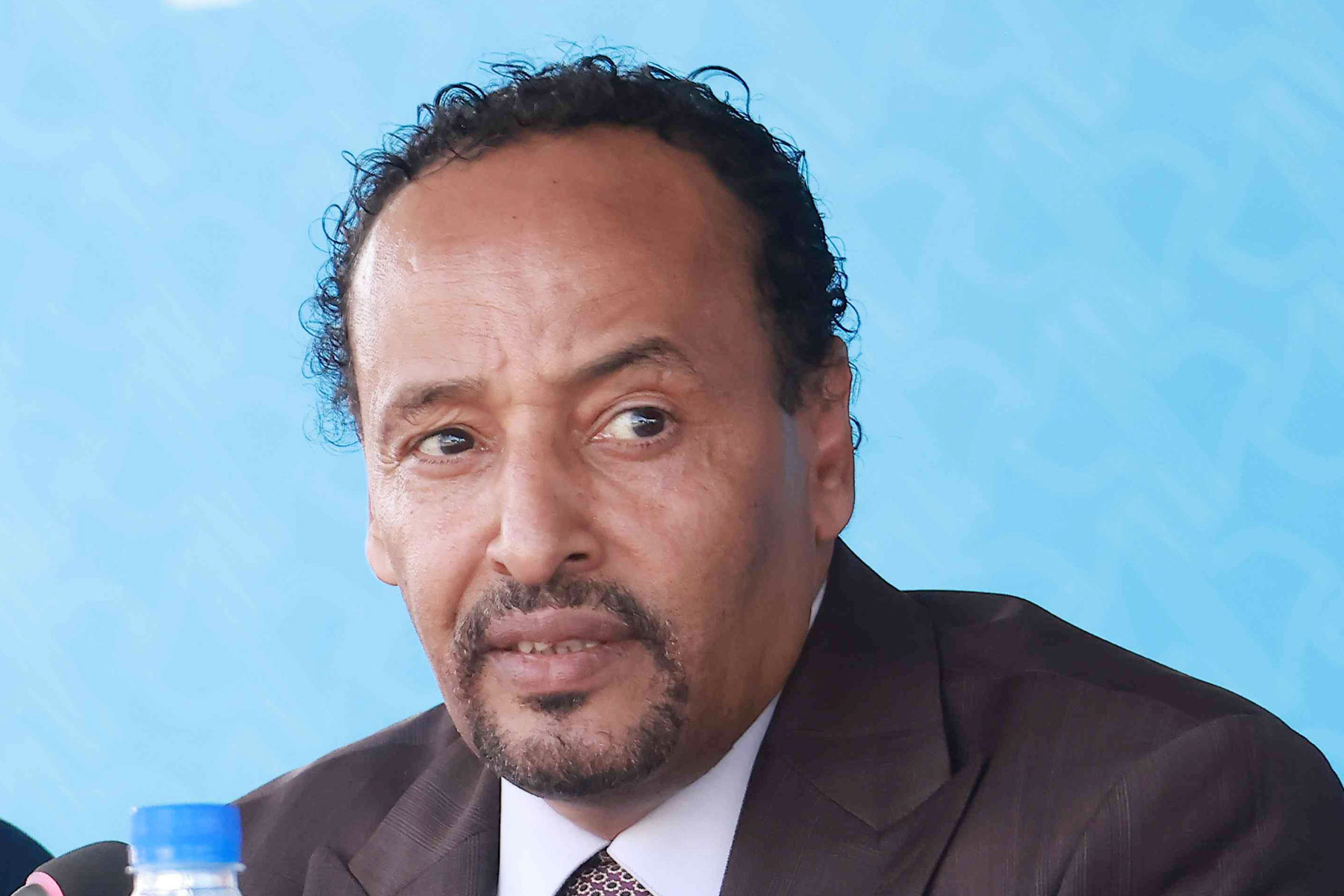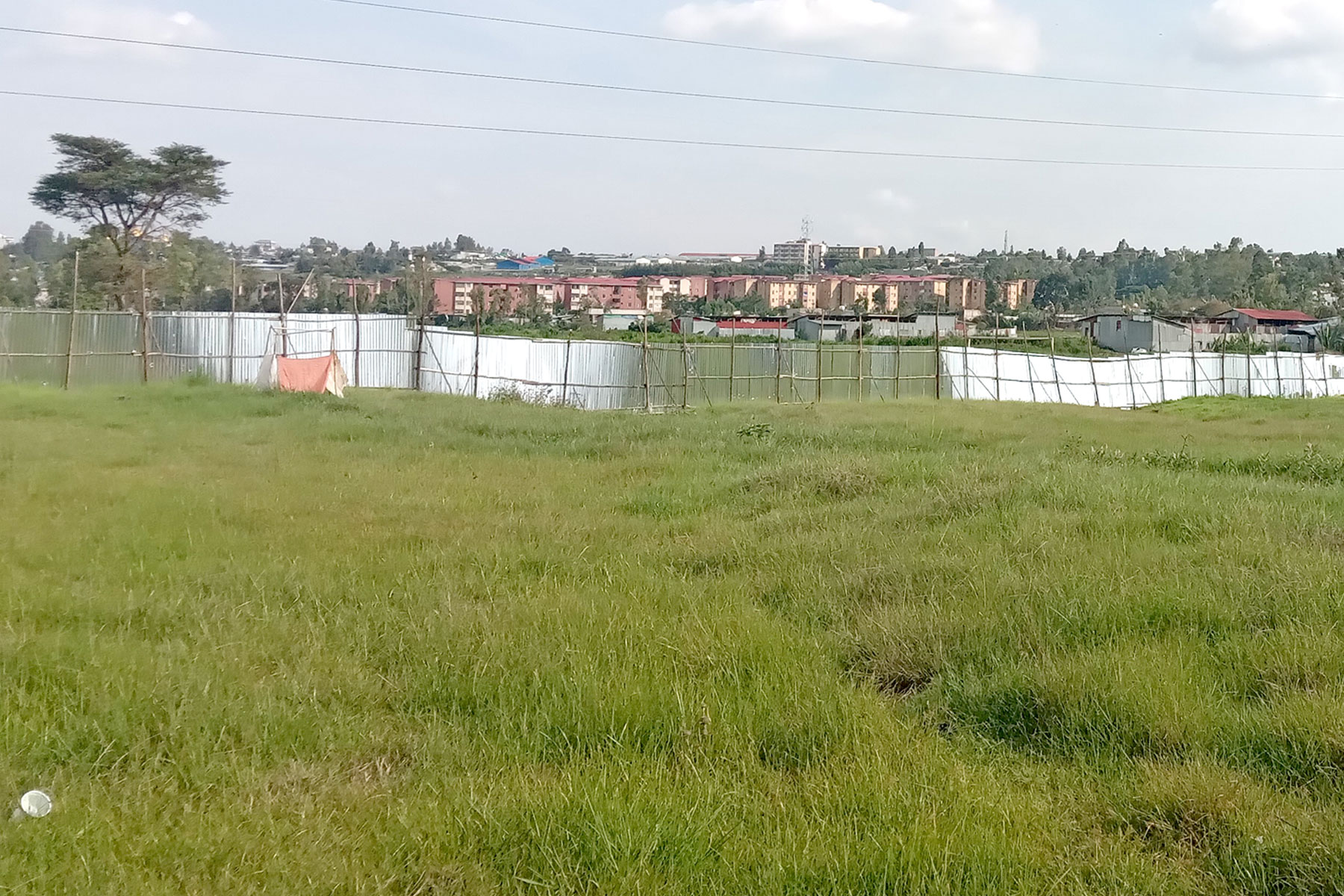
Commentaries | Jun 11,2022
Jun 8 , 2019.
Prime Minister Abiy Ahmed (PhD) was the first foreign leader to land in Khartoum late last week, hoping to help Sudan steer away from the risk of implosion. Indeed, if not handled delicately, there will be no reason Ethiopia’s neighbour will not become another Libya or Syria. The people of Sudan need all the help they can get from friends near and far.
Ethiopia’s Prime Minister was in Sudan a day after the African Union (AU) decided to suspend the country from membership in response to the mayhem of over 100 people being killed by the military. It is as tragic as it is regrettable. But it is also a grim reminder that political transition in Sudan, as in many African countries, is a Pandora’s Box with the potential to go in many unanticipated directions.
The continental body created to help Africans have a life of dignity and hope appears to have aged on its way to becoming relevant to the new dynamics overwhelming its club members: the heads of state. It is a supraorganisation, which seems to have lost its way from the days of its inception.
Almost exactly 56 years ago in this city, Addis Abeba, the respected Gambian historian and pan-Africanist, Alieu Cham Joof, stood before the 32 leaders gathered to form a continental organisation. He said, “Your success will inspire and speed up the freedom and total independence of the African continent and eradicate imperialism and colonialism from the continent and eventually neo-colonialism from the globe.”
When the leaders later announced the formation of the Organization of African Unity (OAU), they declared that the organisation would have as its objective, among other things, the eradication of “. . . All forms of colonialism from Africa”. It was a profound statement that defined the OAU for the first half of its existence.
The OAU realised the dreams of its creators in battling colonialism and assisting the liberation struggle of a number of African countries that were still under colonial rule. It also was instrumental in mobilising international support for the long battle to overcome white minority rule and Apartheid in South Africa and what was then Rhodesia. Those in a way were the golden days of the OAU, which had clarity in its mission and unity in purpose. Its mandate was neither contested nor controversial.
The continental organisation, rebranded as the African Union (AU), has found itself on the sidelines since. With blurred vision and a weakened mandate, it has been floundering on the periphery, struggling to stay relevant to new generations of Africans.
It was barely more than a spectator when successive dictators played their sordid drama on the African stage. These have been big men of the continent that have earned the AU the nickname, “The Dictators’ Club”! The AU shielded some of these dictators from international prosecution for alleged crimes against humanity. Remember Omar Al-Bashir?
It only led to frustrations and a sense of betrayal by a new generation of Africans that are restless for change as they are with the ambition to redefine the relationship between the state and society.
Africa is a young continent, because it has a young demography. Of the 1.2 billion people who live on the continent, 41pc are under the age of 15, while another 19pc are between the ages of 15 and 24. From Libya, Egypt, Tunisia and Algeria to Zimbabwe, Ethiopia, and Mali, members of this new generation have demonstrated their vote of no confidence in the way the status quo runs the affairs of their respective countries. They want to have a new social contract.
Those who hold onto the status quo refused to relent before they get toppled by popular revolts and subsequent military interventions. It is a sign that the once recurring nightmare of military coups is reappearing in Africa. The AU and its club members are allergic to hostile takeovers of political power, often suspending members with the hope of putting pressure on the new leaders to return to civilian rule. Not surprisingly, the AU gave an ultimatum to the military in Sudan to hand over power to a civilian government in two weeks. After the generals lobbied influential Arab leaders in the Middle East, the AU was “persuaded” to extend the time frame to 60 days. Note that the ports of call for the new military leaders’ shuttle diplomacy was the Arab capitals, not Addis Abeba, the seat of its headquarters.
That the AU has suspended Sudan from its membership until “constitutional order is restored” was a decision that waited until the military went on a killing rampage that garnered strong international condemnation. It fits the usual pattern of it being a follower rather than a leader in the affairs of the continent.
At the heart of the AU’s crisis is the absence of a mission that is relevant to the people of the continent and their daily existence. Nothing comes as more of a candid admission than the statement made by Paul Kagame of Rwanda, who led a series of efforts to reform this African supra-institution.
Not much has changed despite, “serious problems repeatedly identified; solutions were found; decisions were made to apply the solutions; and, very little happened.”
It shows that Africa may not need to tinker with the structural and institutional arrangements of its existing organisation but instead reinvent it to meet the demands and aspirations of its young population.
Like any organisation of its nature, the African Union can only be as strong as its member states. Admittedly, many of its members are broke; some cannot even keep up with making their membership contributions. Close to 80pc of its 681.5-million-dollar budget comes from well-meaning donors.
There is also the problem of a large number of the leaders of these member countries lacking legitimacy in their own countries. A lot of them have been in power for two and three decades by manipulating elections and rewriting constitutions. In fact, most young people in Africa have known only one leader in their countries all their lives.
These young people today are not in the same position as those in 1963 when the organisation was founded. They are more educated and connected to the rest of the world. They are more exposed, ambitious and restless. They yearn for a better life. They want to be able to make a decent living. They want good governance from transparent and accountable governments. They want to have a say in the affairs of their countries. They want to have their voices heard, to vote and be able to choose their leaders.
They may want to see a continental organisation operating in their name to reinvent and rebrand itself to deliver on these promises. An organisation that wants to be relevant in this overwhelmingly young continent has to address this deep yearning by young Africans. It has to address desperation so acute that young people are willing to risk a drowning death on a suffocated dingy trying to escape a continent that they have given up hope groping for another that desperately does not want them to come.
It is about time for progressive forces in Africa to start thinking about the reinvention of the African Union. They may consider the idea of representation that incorporates not just the leaders from member countries whose legitimacy is often contested. They have little incentives to name and shame their peers in the club. It is possible to create another body within its structure represented by those who dare to stand up for principle in peacetime to save the AU from having to make very tough choices in the middle of a messy revolution or even worse, a civil war.
In the same speech at that founding conference, Cham Joof had also said, “Your failure, which no true African in Africa is praying for, will prolong our struggle with bitterness and disappointment.”
Unfortunately, his worst fear may have come to pass. If it is to escape that fate and stay relevant, the AU needs to reinvent itself.
PUBLISHED ON
Jun 08,2019 [ VOL
20 , NO
997]

Commentaries | Jun 11,2022

Covid-19 | Apr 17,2020

Commentaries | Mar 23,2024

Radar |

Radar | Oct 28,2023

Fortune News | Feb 22,2020

Viewpoints | Aug 28,2021

Viewpoints | Oct 12,2019

Featured | Oct 03,2020

Viewpoints | Mar 05,2022

Photo Gallery | 96606 Views | May 06,2019

Photo Gallery | 88885 Views | Apr 26,2019

My Opinion | 67158 Views | Aug 14,2021

Commentaries | 65755 Views | Oct 02,2021

Feb 24 , 2024 . By MUNIR SHEMSU
Abel Yeshitila, a real estate developer with a 12-year track record, finds himself unable to sell homes in his latest venture. Despite slash...

Feb 10 , 2024 . By MUNIR SHEMSU
In his last week's address to Parliament, Prime Minister Abiy Ahmed (PhD) painted a picture of an economy...

Jan 7 , 2024
In the realm of international finance and diplomacy, few cities hold the distinction that Addis Abeba doe...

Sep 30 , 2023 . By AKSAH ITALO
On a chilly morning outside Ke'Geberew Market, Yeshi Chane, a 35-year-old mother cradling her seven-month-old baby, stands amidst the throng...

Apr 20 , 2024
Ethiopia's economic reform negotiations with the International Monetary Fund (IMF) are in their fourth round, taking place in Washington, D...

Apr 20 , 2024 . By BERSABEH GEBRE
An undercurrent of controversy surrounds the appointment of founding members of Amhara Bank after regulat...

An ambitious cooperative housing initiative designed to provide thousands with affordable homes is mired...

Apr 20 , 2024 . By AKSAH ITALO
Ethiopia's juice manufacturers confront formidable economic challenges following the reclassification of...